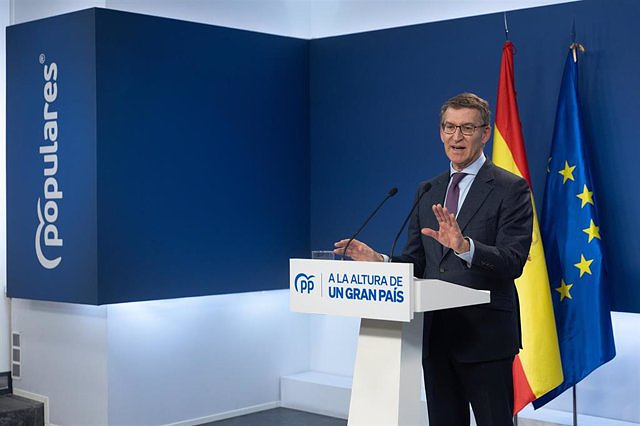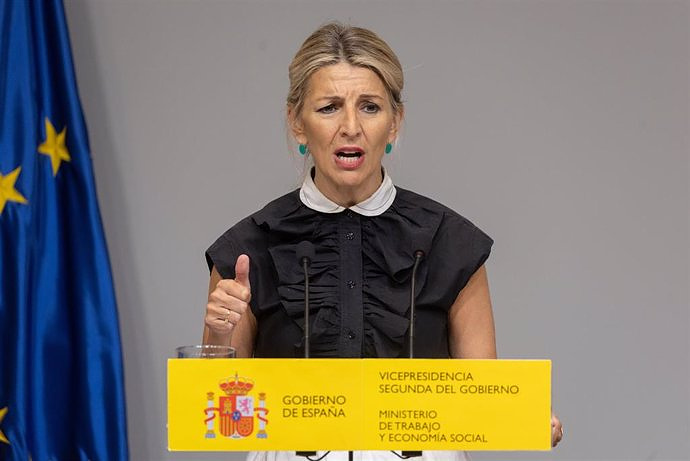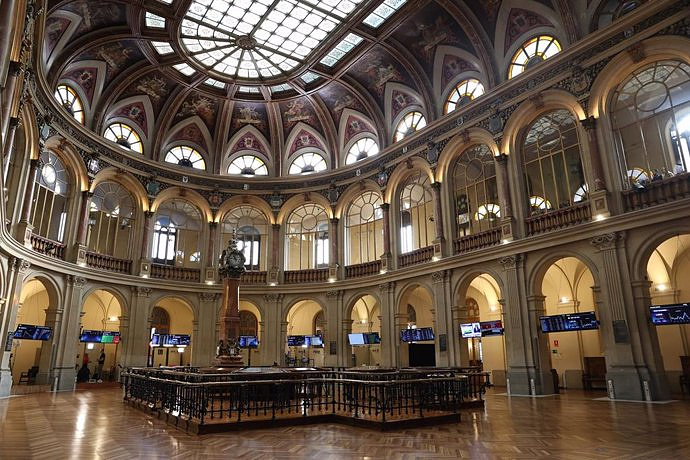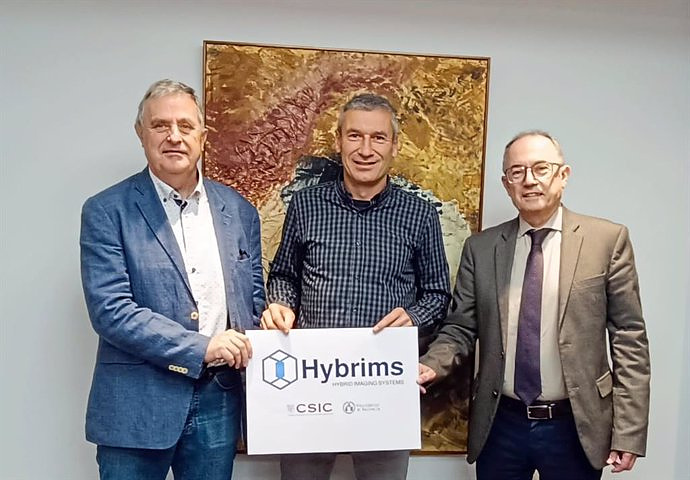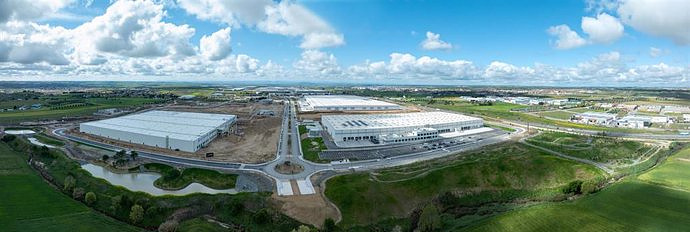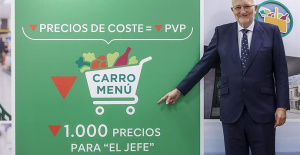It adds that the Government seeks the "obedience" of members of the Judiciary and that the Council has "intervened" by taking away powers
MADRID, 9 Ene. (EUROPA PRESS) -
The leader of the PP, Alberto Núñez Feijóo, has assured this Monday that Pedro Sánchez does not want to renew the General Council of the Judiciary (CGPJ) because "he is not interested" in his "independence" but what he wants is that there are members in the Council and the Constitutional Court with "certain obedience" to the Government. After recalling the pact offers that he has made these months and which have been "rejected", he has acknowledged that it is "very difficult" and "impossible" to reach agreements with the chief executive.
"To the Government, the independence of the Judiciary is something that does not interest it at all, on the contrary, what it wants is that the Judiciary and the Constitutional Court are bodies that have a direct link and a certain obedience to the Government, at least some of them its members", Feijóo declared in an interview on the Cope network, which has been collected by Europa Press.
When asked if this 2023 will be able to unblock the CGPJ and if in the event that the PP governs it will initiate the procedures to change the system of election of the members of judicial origin, Feijóo has indicated that the PP has already made a proposal on this matter in July and, therefore, it does have "interest".
However, he has indicated that the Prime Minister did not call him until October, "the day after" the resignation of Carlos Lesmes, president of the Supreme Court and the CGPJ. In his opinion, the fact that so many months passed - from July to October - shows "what is the interest of the Government in renewing the Council" which, in his opinion, is "little or none".
Feijóo has assured that the Government "does not agree that judges have a leading role in the election of judges" and "intervened" the CGPJ by "emptying it of powers", so that "it cannot make any appointment". Then, he has continued, "he only restored some powers related to the appointment of magistrates of the Constitutional Court."
"Therefore, the one who has played, who has manipulated, who has intervened and who has emptied the content of the CGGP, which has been extended with 80% support from the legislature where it was elected, is the Government," he stated.
The leader of the PP has also explained that when in October "they begin to negotiate the independence" of the Judiciary and deepen the depoliticization of the judges, the Government blows up the negotiation" because, as he has said, it was with the independentistas negotiating "the opposite", agreeing on the "politicization of the Penal Code" and "rendering without effect the judgments of the Supreme Court".
In addition, he added that in December the Executive appointed two magistrates for the TC --Juan Carlos Campo and Laura Díez-- who had "formed part of the Government in this legislature." For this reason, he has reiterated that the Government "the independence of the Judiciary is something that does not interest it at all."
In this scenario, Feijóo has indicated that the PP has once again presented a proposal on the CGPJ that it has registered in Congress, which is what the PP "commits" to do if it governs. It is about 12 members of the Council being elected by judges and magistrates and the remaining eight by the Chambers. In addition, he has indicated that his initiative includes requirements to avoid "revolving doors" and facts such as the State Attorney General having previously belonged to the Government.
"The model that we are proposing is the model that the EU is asking for and it is the model that I understand is the most respectful of the Constitution," the president of the 'popular' party declared in the same interview.
Faced with the fact that later he cannot fulfill his promises if he intends to agree with the PSOE, the president of the PP has indicated that, when things were "agreed" between the two big parties in Spain, the country was doing better.
"It is true that the PSOE is now occupied by Sánchez and his team and it is true that, as long as this remains, it will be very difficult. I think it is impossible," he acknowledged, after recalling that since April he has sent him six documents on different subjects but "were rejected".
In this sense, the president of the PP has indicated that "always" that the PSOE "needs to agree" it does so with the "nationalists and independentistas" and "never" with the Popular Party, "not even" the decree laws.

 Exploring Cardano: Inner Workings and Advantages of this Cryptocurrency
Exploring Cardano: Inner Workings and Advantages of this Cryptocurrency Seville.- Economy.- Innova.- STSA inaugurates its new painting and sealing hangar in San Pablo, for 18 million
Seville.- Economy.- Innova.- STSA inaugurates its new painting and sealing hangar in San Pablo, for 18 million Innova.- More than 300 volunteers join the Andalucía Compromiso Digital network in one month to facilitate access to ICT
Innova.- More than 300 volunteers join the Andalucía Compromiso Digital network in one month to facilitate access to ICT Innova.-AMP.- Ayesa acquires 51% of Sadiel, which will create new technological engineering products and expand markets
Innova.-AMP.- Ayesa acquires 51% of Sadiel, which will create new technological engineering products and expand markets Cos bids farewell to Congress warning that the lack of political consensus "affects economic prospects"
Cos bids farewell to Congress warning that the lack of political consensus "affects economic prospects" Two workers died and one injured when two floors collapsed in a building under construction in Fuencarral
Two workers died and one injured when two floors collapsed in a building under construction in Fuencarral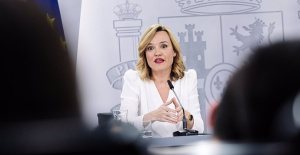 The Government will wait until after the European elections to propose measures on democratic regeneration
The Government will wait until after the European elections to propose measures on democratic regeneration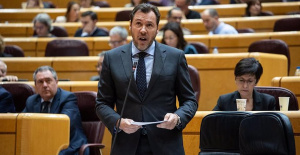 The PP sees Puente as Sánchez's "servant" and the PSOE as a "sect", and the minister accuses them of putting on a show
The PP sees Puente as Sánchez's "servant" and the PSOE as a "sect", and the minister accuses them of putting on a show How Blockchain in being used to shape the future
How Blockchain in being used to shape the future Not just BTC and ETH: Here Are Some More Interesting Coins Worth Focusing on
Not just BTC and ETH: Here Are Some More Interesting Coins Worth Focusing on They develop devices for the precise diagnosis of cancer patients
They develop devices for the precise diagnosis of cancer patients UMH researchers are working on a high-quality apricot crop that requires less irrigation water
UMH researchers are working on a high-quality apricot crop that requires less irrigation water The UPV develops an application to improve the quality of life of patients with glioblastoma
The UPV develops an application to improve the quality of life of patients with glioblastoma A sensor system obtains the fingerprint of essential oils and detects if they have been adulterated
A sensor system obtains the fingerprint of essential oils and detects if they have been adulterated A million people demonstrate in France against Macron's pension reform
A million people demonstrate in France against Macron's pension reform Russia launches several missiles against "critical infrastructure" in the city of Zaporizhia
Russia launches several missiles against "critical infrastructure" in the city of Zaporizhia A "procession" remembers the dead of the Calabria shipwreck as bodies continue to wash up on the shore
A "procession" remembers the dead of the Calabria shipwreck as bodies continue to wash up on the shore Prison sentences handed down for three prominent Hong Kong pro-democracy activists
Prison sentences handed down for three prominent Hong Kong pro-democracy activists ETH continues to leave trading platforms, Ethereum balance on exchanges lowest in 3 years
ETH continues to leave trading platforms, Ethereum balance on exchanges lowest in 3 years Investors invest $450 million in Consensys, Ethereum incubator now valued at $7 billion
Investors invest $450 million in Consensys, Ethereum incubator now valued at $7 billion Alchemy Integrates Ethereum L2 Product Starknet to Enhance Web3 Scalability at a Price 100x Lower Than L1 Fees
Alchemy Integrates Ethereum L2 Product Starknet to Enhance Web3 Scalability at a Price 100x Lower Than L1 Fees Mining Report: Bitcoin's Electricity Consumption Declines by 25% in Q1 2022
Mining Report: Bitcoin's Electricity Consumption Declines by 25% in Q1 2022 Oil-to-Bitcoin Mining Firm Crusoe Energy Systems Raised $505 Million
Oil-to-Bitcoin Mining Firm Crusoe Energy Systems Raised $505 Million Microbt reveals the latest Bitcoin mining rigs -- Machines produce up to 126 TH/s with custom 5nm chip design
Microbt reveals the latest Bitcoin mining rigs -- Machines produce up to 126 TH/s with custom 5nm chip design Bitcoin's Mining Difficulty Hits a Lifetime High, With More Than 90% of BTC Supply Issued
Bitcoin's Mining Difficulty Hits a Lifetime High, With More Than 90% of BTC Supply Issued The Biggest Movers are Near, EOS, and RUNE during Friday's Selloff
The Biggest Movers are Near, EOS, and RUNE during Friday's Selloff Global Markets Spooked by a Hawkish Fed and Covid, Stocks and Crypto Gain After Musk Buys Twitter
Global Markets Spooked by a Hawkish Fed and Covid, Stocks and Crypto Gain After Musk Buys Twitter Bitso to offset carbon emissions from the Trading Platform's ERC20, ETH, and BTC Transactions
Bitso to offset carbon emissions from the Trading Platform's ERC20, ETH, and BTC Transactions Draftkings Announces 2022 College Hoops NFT Selection for March Madness
Draftkings Announces 2022 College Hoops NFT Selection for March Madness